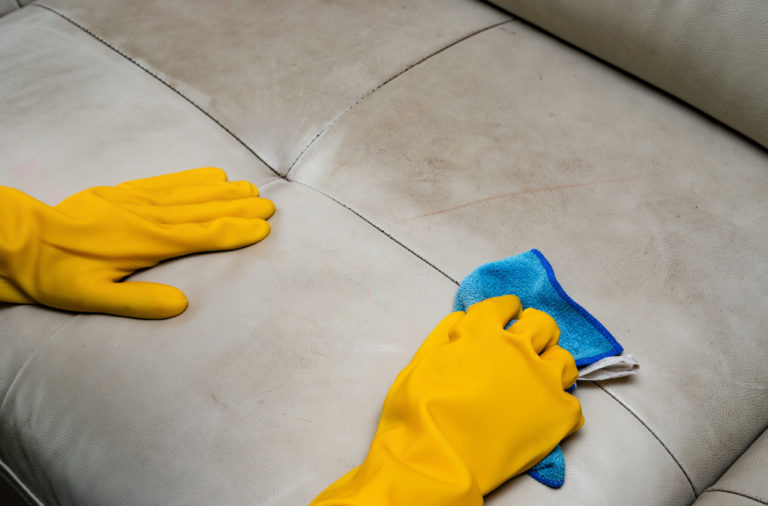Studies show that some bacteria can divide every 20 minutes, given that they have the proper nutrients and are in the right temperatures. Relatively, there are over 30 objects in your home that carry more than 340 various bacteria. However, it’s important to remember that not all these bacteria are harmful. Your body might even contain some of them. Yet many bacteria spread out in your home can make you sick, such as:
- Yeast and mold
- Fecal matter
- Salmonella
- Staph
- E. coli
The SARS-CoV-2 virus can also be found in numerous areas in your home. It’s the newest coronavirus that caused a global pandemic in the last two years. Symptoms of covid-19 include coughing, fever, and shortness of breath.
It’s easy for the coronavirus to spread quickly in your house as the virus can live for hours and days. In a recent study, the new coronavirus is often found in the following surfaces and environment:
- Cardboard
- In the air
- Copper
- Plastic and stainless steel
The Dirtiest Areas In Your Home
Kitchen
According to the National Sanitation Foundation, food prepared and stored contains many fecal contamination and bacteria. In most cases, kitchen rags and dish sponges have E. coli, Salmonella, and fecal substances; they’re even dirtier than bathroom doorknobs and faucets.
Kitchen items that need regular cleaning are:
- Coffee maker
- Cutting boards
- Refrigerator
- Countertops
- Kitchen sink
You might find these tips helpful in keeping the mentioned areas clean:
- Soak your dish sponge in warm water with concentrated bleach.
- Use disinfectant wipes in cleaning surfaces, faucets, countertops, and refrigerators.
- Change dish towels frequently.
- Always wash your hands before and after touching food.
Rubbing alcohol and bleach containing 70% isopropanol or 60% ethanol is particularly effective against the coronavirus, so make sure to use disinfectants with these components.
Handles, Knobs, and Switches
Handles, doorknobs, and switches are common places for germs, but they are usually the most neglected. And while you might think that your bathroom doorknob is the dirtiest of all, studies show that some spots in your home have higher levels of bacteria, including:
- Stove knobs
- Ref handles
- Light switches
- Microwave handles
Make sure to clean these spots at least once a week with disinfectants. If you need to hire services that would require people to come inside your house, for instance, an HVAC service provider or a home contractor, make sure to clean the places they visited in your house after they leave.
Bathroom
It’s not surprising that your bathroom is one of the dirtiest areas in your home. Because of the moisture from the hot shower, the bathroom becomes a perfect place for germs to grow. You need to pay special attention in cleaning the following spots:

- Faucets
- Drains
- Shower tub
- Toothbrushed
- Bath towels
- Floor
- Toilet
If possible, wipe handles and surfaces with disinfectant daily, and make sure to clean your bathroom thoroughly every week.
Laundry Area
Wet laundry in a washing machine, left for some time, can encourage germ growth. Avoid leaving clean and wet clothes in the washing machine and immediately transfer them to the dryer. Clothes that stay in the washer for more than an hour may need to be rewashed to remove flourishing bacteria and germs.
Make sure to wipe down surfaces before placing folded clothes in them.
Living Room
Many tools in your living room are home to several bacteria. The family and guests typically share computer keyboards, phones, remote controls, and tablets, so make sure to clean them regularly.
In addition, surfaces in the living room can also carry numerous dirt and dust, making it crucial to clean them as often as possible. As mentioned, the coronavirus can live on plastic materials, so ensure to clean your keyboards and remote controls with disinfectants.
Pets
Sadly, your beloved pets can also bring bacteria and germs inside your home, especially if they wander outdoor.
Apart from home furniture, your pet’s toys carry mold, yeast, and staph. But that’s not all; your pet can also pass on the germs to their bed, toys, and bowls. But if it’s any consolation, pets don’t get infected by covid-19, so the virus will not affect them in any way. However, they can transfer the virus to your unsuspecting family.
Ideally, the best way to prevent bacteria and germs from spreading in your home is by keeping things clean. That said, here are some good habits to practice to keep your house clean:
- Take off your shoes before entering the house
- Wash your hands frequently.
- Wash your clothes after wearing them outdoor.
- Clean your home using bleach and water and disinfectant wipes.
- Avoid touching your face.
- If possible, avoid going outdoors.




